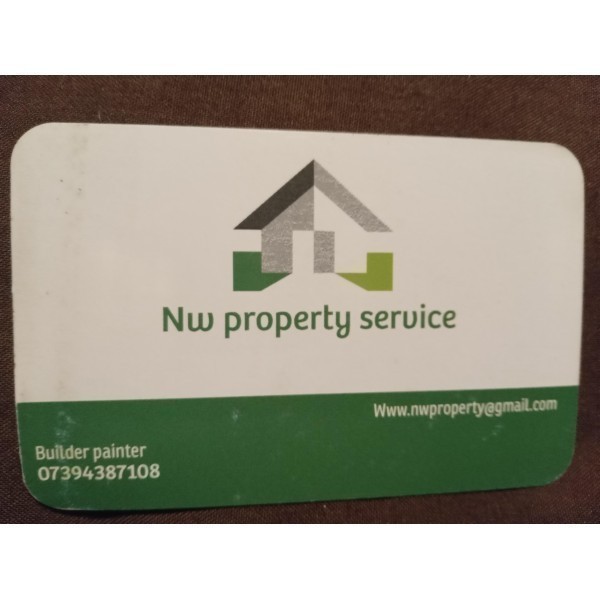Damp Proofing in Blackburn
Filter your search
Post your job FREE and let trades come to you
Save time by filling out our simple job post form today and your job will be sent to trades in your area so you can sit back, relax and wait for available trades to contact you.
Post your job FREESearch Damp Proofing in places nearby
- Damp Proofing in Accrington
- Damp Proofing in Adlington
- Damp Proofing in Bacup
- Damp Proofing in Bamber Bridge
- Damp Proofing in Barnoldswick
- Damp Proofing in Barrowford
- Damp Proofing in Blackpool
- Damp Proofing in Brierfield
- Damp Proofing in Burnley
- Damp Proofing in Carnforth
- Damp Proofing in Chorley
- Damp Proofing in Church
- Damp Proofing in Clayton-Le-Moors
- Damp Proofing in Cleveleys
- Damp Proofing in Clitheroe
- Damp Proofing in Colne
- Damp Proofing in Darwen
- Damp Proofing in Earby
- Damp Proofing in Fleetwood
- Damp Proofing in Freckleton
- Damp Proofing in Fulwood
- Damp Proofing in Great Harwood
- Damp Proofing in Haslingden
- Damp Proofing in Heysham
- Damp Proofing in Kirkham
- Damp Proofing in Lancaster
- Damp Proofing in Leyland
- Damp Proofing in Longridge
- Damp Proofing in Lytham St Anne's
- Damp Proofing in Morecambe
- Damp Proofing in Nelson
- Damp Proofing in Ormskirk
- Damp Proofing in Oswaldtwistle
- Damp Proofing in Padiham
- Damp Proofing in Poulton-Le-Fylde
- Damp Proofing in Preston
- Damp Proofing in Rawtenstall
- Damp Proofing in Rishton
- Damp Proofing in Skelmersdale
- Damp Proofing in Thornton
- Damp Proofing in Trawden
- Damp Proofing in Whitworth
Understanding Damp Proofing in Blackburn
Damp proofing is an essential process for maintaining the structural integrity and comfort of homes, particularly in areas like Blackburn, where the climate can be quite damp. This article delves into the various aspects of damp proofing, providing a comprehensive guide for homeowners and builders alike. From understanding the causes of dampness to exploring different damp proofing methods, this guide covers it all.
What is Damp Proofing?
Damp proofing refers to a range of techniques and treatments used to prevent moisture from penetrating the walls and floors of buildings. It is crucial for preventing structural damage and health issues caused by mould and mildew. In Blackburn, where the weather can be particularly wet, damp proofing is a vital consideration for any property owner.
Why is Damp Proofing Important?
Without proper damp proofing, buildings can suffer from a range of issues, including structural damage, decay, and health problems for occupants. Damp environments are breeding grounds for mould and mildew, which can cause respiratory issues and allergies. Moreover, dampness can weaken the structural components of a building, leading to costly repairs.
Common Causes of Dampness in Blackburn
Understanding the causes of dampness is the first step in effectively addressing it. In Blackburn, several factors contribute to damp conditions in buildings:
- Climate: The wet and humid climate in Blackburn can lead to increased moisture levels in buildings.
- Poor Ventilation: Lack of proper ventilation can trap moisture inside, leading to dampness.
- Leaking Pipes: Undetected leaks can cause significant damp issues over time.
- Rising Damp: This occurs when moisture from the ground rises up through the walls and floors.
- Penetrating Damp: Water ingress through walls due to damaged masonry or faulty gutters.
Types of Damp Proofing Methods
There are several methods of damp proofing, each suited to different types of damp problems. Here are some common techniques used in Blackburn:
Chemical Damp Proof Courses (DPC)
This method involves injecting a chemical solution into the walls to create a barrier that prevents moisture from rising. It's effective for treating rising damp and is a popular choice in Blackburn due to its reliability.
Membrane Systems
Membrane systems involve applying a waterproof layer to walls or floors to prevent moisture ingress. These systems are particularly useful for basements and areas below ground level.
Exterior Waterproofing
This involves applying a waterproof coating to the exterior walls of a building. It helps prevent penetrating damp by stopping water from entering the structure.
Improving Drainage
Ensuring proper drainage around a building can significantly reduce the risk of dampness. This might involve installing French drains or improving gutter systems to direct water away from the building.
Signs of Dampness to Look Out For
Detecting dampness early can save you from costly repairs. Here are some signs to watch for:
- Musty Odours: A persistent musty smell can indicate mould growth due to dampness.
- Peeling Paint or Wallpaper: Moisture can cause paint and wallpaper to peel away from walls.
- Discoloured Patches: Dark or discoloured patches on walls or ceilings often indicate damp.
- Mould Growth: Visible mould is a clear sign of excessive moisture.
- Cold Walls: Damp walls often feel cold to the touch.
Choosing the Right Damp Proofing Specialist in Blackburn
When it comes to damp proofing, hiring a professional is often the best course of action. Here are some tips for choosing the right specialist in Blackburn:
- Experience: Look for a company with a proven track record in damp proofing.
- Certifications: Ensure the specialist is certified and follows industry standards.
- References: Ask for references or read reviews from previous clients.
- Detailed Quotes: Obtain detailed quotes and compare them to ensure you're getting a fair deal.
DIY Damp Proofing: Is it a Viable Option?
While some minor damp issues can be tackled with DIY methods, significant problems usually require professional intervention. Here are some DIY tips for minor damp problems:
- Improve Ventilation: Use fans and open windows to improve air circulation.
- Seal Leaks: Fix any leaking pipes or roofs promptly.
- Use Dehumidifiers: Dehumidifiers can help reduce moisture levels indoors.
- Apply Anti-Mould Paint: Special paints can help prevent mould growth on walls.
The Cost of Damp Proofing in Blackburn
The cost of damp proofing can vary widely depending on the severity of the problem and the method used. Here's a rough guide to what you might expect:
| Method | Estimated Cost |
|---|---|
| Chemical DPC | £500 - £1,500 |
| Membrane Systems | £1,000 - £3,000 |
| Exterior Waterproofing | £800 - £2,500 |
| Improving Drainage | £500 - £2,000 |
These costs are estimates and can vary based on the size of the property and the extent of the damp problem.
Long-term Benefits of Damp Proofing
Investing in damp proofing offers several long-term benefits, including:
- Increased Property Value: A well-maintained, damp-free property is more attractive to buyers.
- Healthier Living Environment: Reducing dampness decreases the risk of mould-related health issues.
- Lower Maintenance Costs: Preventing damp damage reduces the need for costly repairs.
- Improved Energy Efficiency: Dry walls provide better insulation, reducing heating costs.
Frequently Asked Questions
What is the difference between damp proofing and waterproofing?
Damp proofing is designed to prevent moisture from entering a building, while waterproofing provides a complete barrier against water ingress, often used in basements or areas below ground level.
How long does damp proofing last?
The longevity of damp proofing depends on the method used and the quality of the installation. Chemical DPCs can last for decades, while membrane systems may require maintenance over time.
Can damp proofing be done in winter?
Yes, damp proofing can be carried out in winter, although some methods may be more challenging due to weather conditions. It's best to consult with a professional to determine the best approach.
Is damp proofing covered by insurance?
Most home insurance policies do not cover damp proofing as it is considered a maintenance issue. However, it's worth checking with your insurer for specific coverage details.
How can I prevent dampness in my home?
Regular maintenance, such as fixing leaks, improving ventilation, and ensuring proper drainage, can help prevent dampness. Using dehumidifiers and anti-mould paints can also be beneficial.
What should I do if I suspect dampness in my home?
If you suspect dampness, it's important to address it promptly. Start by identifying the source of moisture and consider consulting a damp proofing specialist for a thorough assessment.
In conclusion, damp proofing in Blackburn is a crucial aspect of property maintenance, ensuring homes remain safe, comfortable, and structurally sound. By understanding the causes, methods, and benefits of damp proofing, homeowners can make informed decisions to protect their investments and enhance their living environments.







